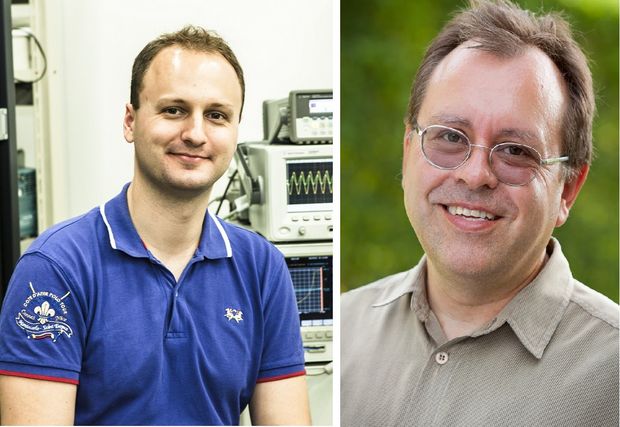Two JKU research projects will be focusing on improving the detection of early-onset Alzheimer’s and regenerating heart tissue cells.

Modern medicine cannot cure everything. Two examples include Alzheimer’s and irreparably damaged heart cells. Researchers at the Johannes Kepler University are currently working to change that.
Together with five partners from Italy, Finland, and Belgium, Univ. Prof. Siegfried Bauer is developing a new medical sensor to better detect early-onset Alzheimer’s with more precision. The advantage: the sooner the patient is diagnosed, the sooner he/she can begin therapy and treatment, thus delaying the full onset of the disease.
With the aid of pyroelectric effects, researchers have succeeded in making many smaller drops out of larger drops of liquid. These smaller drops contain certain molecules that were originally less dispersed in the solution and in smaller concentrations (such as, for example, Alzheimer pathogens in human blood). These can be better detected using a medical sensor. JKU researchers are working on these specific sensors.
As part of the project, Prof. Bauer’s group is developing special crystals to replace the sensor’s basis as opposed to previous models. These were not only more expensive, but also very fragile.
The FET Open Project is a three-year project that will begin in 2019; the JKU’s share of the budget is €400,000.
Matters of the Heart
Dr. Martin Kaltenbrunner is part of an 8-partner project. Because irreparable cells found in heart tissue cannot renew themselves, heart disease cannot be treated by taking medication. Project researchers, however, have seen the light: They are trying to repair damaged heart cells using light to stimulate growth and without genetically modifying the cell.
With the help of organic semi-conductor nanoparticles or thin films, the stimulation process should work. These photo-active materials can be introduced in close proximity to – or even directly into - cells. The organic semi-conductors are the light-sensitive part (cells are largely transparent to visible light) and enable optical cell stimulation.
Dr. Kaltenbrunner is focusing on which form of stimulation is best for cells.
The JKU’s share of the budget for the four-year project is €300,000. The project is set to start at the beginning of 2019.
About FET Open
Funding provided by the EU’s FET-Open program supports the early stages of research and innovation in science and technology. The program is competitive and the acceptance rate is very low. JKU Vice-Rector Alexander Egyed remarked, "All the better that we have received funding for two more exciting projects in addition to the two, currently ongoing FET Open projects at the JKU.”
 Go to JKU Homepage
Go to JKU Homepage








